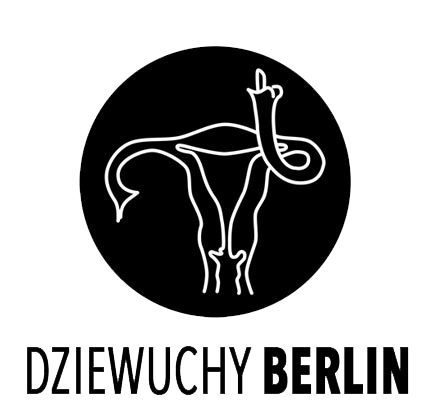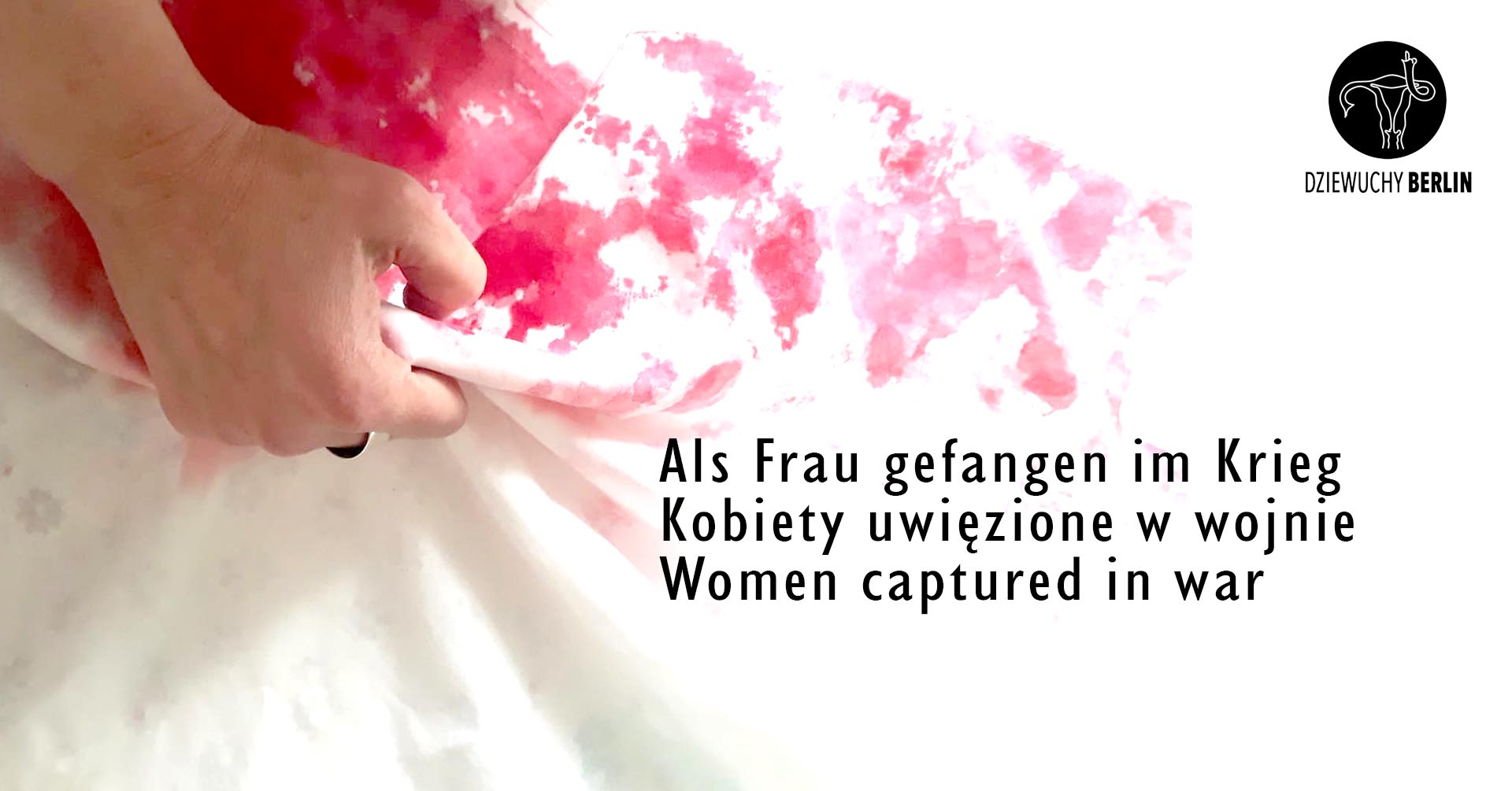Als Frau gefangen im Krieg
Krieg ist Hass. Krieg ist Verlust. Krieg ist Gewalt.
Seit den Angriff Russlands auf die Ukraine am 24 Februar hält die ganze Welt ihr Atem. Unzählige Organisationen formten sich um sofortige Unterstützung zu bieten und Menschen auf der Flucht einen schnellstmöglichen Transport anzubieten. Privatpersonen stellen Anzeigen auf soziale Medien mit der Information über Hilfe – und Sammelstellen. Menschenmassen protestieren.
Doch Krieg ist nicht nur militärische Gewalt. Es ist vor allem sexuelle Gewalt, die fast schon als eine natürliche Folge des Geschehens betrachtet wird. Man redet nicht gern darüber – es ist ein Taboo. Jedoch richtet sich diese Gewalt nicht nur gegen Frauen im Kriegsgebiet.
Auch Frauen auf der Flucht haben Angst während sie verzweifelt versuchen ihr Land zu verlassen. Viele von ihnen haben Angst an Transporten teilzunehmen an denen nur Männer beteiligt sind. Eine Angst verschleppt zu werden und als menschliche Ware irgendwo im Westen zu landen. Eine Angst irgendwo zu landen wo sie noch Schlimmeres erwarten kann als der Krieg selbst. Der Menschenhandel in Europa ist zwischen 2015 und 2018 um knapp 50 % gestiegen. Und die Zahlen steigen weiter an. Ca. 95 % Opfer der sexuellen Ausbeutung sind Frauen. Besonders osteuropäische Frauen sind betroffen.
Vergewaltigung ist eine Kriegswaffe.
Und trotzdem ist es ein Randthema – selbst in Friedensprozessen. Das Trauma wird nicht aufgearbeitet. Nur sehr selten wird den Opfern Hilfe angeboten, selbst nach dem Ende des Konflikts. Oft müssen sie ihr Leben lang mit dem Trauma des Krieges und sexueller Gewalt leben – nur sehr wenige wagen es über ihre Erfahrungen zu sprechen und diese entsprechend zu verarbeiten. Starke psychische Probleme direkt als Folge des Traumas sind zu erwarten.
Deshalb ist es besonders wichtig, dass wir in unserer Unterstützung dieses Problem mit einbeziehen; dass wir über das Problem offen sprechen um bestmögliche Hilfe für die Bedürftigen zu leisten – und nicht nur unser Gewissen zu beruhigen.
Kobiety uwięzione w wojnie
Wojna to nienawiść. Wojna to straty. Wojna to przemoc.
Od czasu ataku Rosji na Ukrainę 24 lutego cały świat wstrzymuje oddech. Powstały niezliczone organizacje, które na celu mają zapewnienie natychmiastowej pomoc i jak najszybszego transportu uchodźcą. Osoby prywatne zamieszczają reklamy w mediach społecznościowych z informacją o punktach pomocy i zbiórki. Tłumy protestują na ulicach.
Ale wojna to nie tylko przemoc militarna. To także przemoc seksualna. która jest postrzegana niemal jak naturalna konsekwencja tego, co się dzieje. Nie lubimy o tym rozmawiać – to temat tabu. Jednak ta przemoc jest wymierzona nie tylko w kobiety w bezpośredniej strefie działań wojennych.
Boją się również kobiety desperacko próbujące opuścić swój kraj. Wiele z nich boi się brać udział w transportach z udziałem samych mężczyzn. Boją się porwania i wylądowania gdzieś na Zachodzie jako ludzki towar. To strach, że skończą gdzieś gdzie czeka ich coś gorszego niż wojna. Handel ludźmi w Europie wzrósł o prawie 50% między 2015-2018. A liczby nadal rosną. Około 95% ofiar wykorzystywania seksualnego to kobiety. Szczególnie dotknięte są kobiety z Europy Wschodniej.
Gwałt to broń wojenna.
A jednak traktuje się temat gwałtu jak kwestia marginalna – nawet w procesach pokojowych. Trauma ta nie jest przetwarzana. Bardzo rzadko udzielana jest pomoc ofiarom, nawet po zakończeniu konfliktu. Często przez całe życie muszą żyć z traumą wojny i przemocy seksualnej – tylko nieliczni mają odwagę opowiadać o swoich doświadczeniach i odpowiednio je przetwarzać. Spodziewać możemy się silnych problemów psychologicznych bezpośrednio w wyniku traumy.
Dlatego szczególnie ważne jest, abyśmy zwracali uwagę na ten problem w czasie okazywania naszego wsparcia. Abyśmy otwarcie mówili o problemie. Abyśmy jak najlepiej mogli pomóc potrzebującym, a nie tylko ukajali własne sumienia.
Women captured in war
War is hate. War is loss. War is violence.
Since Russia’s attack on Ukraine on February 24, the whole world has been holding its breath. Countless organizations formed to provide immediate assistance and to offer the fastest possible transportation to people fleeing the country. People use their private social media accounts to place advertisements with information about help and collection points. Crowds show their anger in mass protests.
But war is not only military violence. It is mainly sexual violence that is almost seen as a natural consequence of what is happening. We don’t like to talk about it – it’s a taboo. However, this violence is not only aimed at women in the war zone.
Refugee women are also afraid as they desperately try to leave their country. Many of them are afraid to take part in transports involving only men. A fear of being abducted and ending up somewhere in the West; falling victim to human trafficking. A fear of ending up somewhere worse than the warzone itself. Human trafficking in Europe increased by almost 50% between 2015 and 2018. And the numbers continue to rise. Approximately 95% victims of sexual exploitation are women. Eastern European women are particularly affected.
Rape is a weapon of war.
And yet it is a marginal issue – even in peace processes. The trauma is not being processed. Only very rarely is help offered to the victims, even after the end of the conflict. Often they have to live with the trauma of war and sexual violence all their lives – very few dare to talk about their experiences and seek help to process them accordingly. Strong psychological problems directly as a result of the trauma are to be expected.
It is therefore particularly important that we include this problem in our support; that we speak openly about the problem in order to provide the best possible help to those in need – and not just to salve our conscience.
Patrycja Makucewicz

